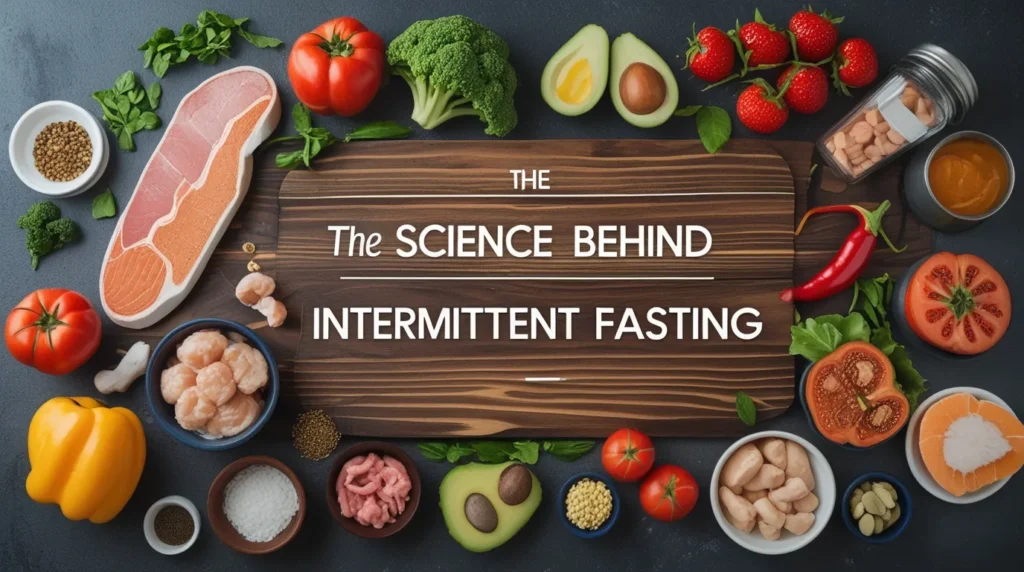The Science Behind Intermittent Fasting
Intermittent fasting (IF) has gained immense popularity in recent years as a powerful approach to weight management, metabolic health, and overall well-being. Unlike The Science Behind Intermittent Fasting conventional diets that focus on what to eat, intermittent fasting emphasizes when to eat. But what is the science behind it? How does intermittent fasting affect the body, and why has it become such a significant trend in health and nutrition?
What is Intermittent Fasting?
Intermittent fasting is an eating pattern that cycles between periods of eating and fasting. It does not prescribe specific foods but rather focuses on time-restricted The Science Behind Intermittent Fasting eating. The most common fasting methods include:
- 16/8 Method – Fasting for 16 hours and eating within an 8-hour window.
- 5:2 Diet – Eating normally for five days a week and restricting calorie intake (500-600 calories) for two non-consecutive days.
- Eat-Stop-Eat – Fasting for 24 hours once or twice a week.
- Alternate-Day Fasting – Alternating between normal eating days and fasting days.
- OMAD (One Meal a Day) – Eating only one meal per day, typically within a one-hour window.
Each of these methods aims to give the body enough time in a fasted state to trigger metabolic benefits.
How Intermittent Fasting Affects the Body
During fasting periods, the body undergoes several physiological changes at the cellular and molecular levels. These changes contribute to the health benefits The Science Behind Intermittent Fasting associated with IF. Here’s a breakdown of the science behind intermittent fasting:
1. Cellular Repair and Autophagy
One of the most significant benefits of fasting is autophagy, a cellular process that removes damaged cells and recycles their components. This process helps clear out toxins, reduces inflammation, and may lower the risk of diseases like cancer and The Science Behind Intermittent Fasting Alzheimer’s.
2. Hormonal Changes
Fasting affects the secretion of several hormones, including:
- Insulin: Levels drop significantly, allowing the body to access stored fat more efficiently.
- Human Growth Hormone (HGH): Increases by up to 5 times, promoting fat loss and muscle gain.
- Norepinephrine: Boosts fat breakdown and energy expenditure.
3. Fat Burning and Weight Loss
With lower insulin levels and increased norepinephrine, the body enters a fat-burning state. Studies show that intermittent fasting can increase metabolism by 3-14%, making it an effective weight loss strategy. The Science Behind Intermittent Fasting
4. Blood Sugar and Insulin Sensitivity
Intermittent fasting has been shown to improve insulin sensitivity, reducing blood sugar levels by 3-6% in prediabetic individuals. This lowers the risk of type 2 The Science Behind Intermittent Fasting diabetes.
5. Brain Health and Cognitive Function
Fasting enhances brain function by increasing the production of brain-derived The Science Behind Intermittent Fasting neurotrophic factor (BDNF), a protein that supports cognitive function and neural health. It also reduces oxidative stress and inflammation, potentially reducing the risk of neurodegenerative diseases.
6. Longevity and Aging
Studies on animals suggest that intermittent fasting may extend lifespan by The Science Behind Intermittent Fasting activating longevity genes and reducing age-related diseases.
Health Benefits of Intermittent Fasting
1. Weight Loss and Fat Reduction
By creating a calorie deficit and improving metabolism, intermittent fasting is an The Science Behind Intermittent Fasting effective tool for weight management.
2. Heart Health
Intermittent fasting has been linked to improved cholesterol levels, lower blood The Science Behind Intermittent Fasting pressure, and reduced inflammation, all of which contribute to better cardiovascular health.
3. Inflammation and Immune System Boost
Fasting reduces markers of inflammation, which is a key factor in many chronic diseases, including arthritis and autoimmune disorders.
4. Gut Health and Digestion
A fasting period allows the gut to rest, promoting a healthier microbiome and reducing the risk of digestive issues like bloating and acid reflux.
Common Myths About Intermittent Fasting
1. Intermittent Fasting Slows Down Metabolism
Contrary to popular belief, short-term fasting boosts metabolism by increasing norepinephrine levels. Only prolonged starvation significantly reduces metabolic rate.
2. You Lose Muscle Mass
With adequate protein intake and resistance training, intermittent fasting does not lead to muscle loss. In fact, increased HGH levels support muscle preservation.
3. It Leads to Nutrient Deficiencies
As long as you eat a balanced diet during eating windows, intermittent fasting does not cause deficiencies.
4. Fasting Causes Low Energy Levels
After an adjustment period, many people experience increased energy and mental clarity due to stable blood sugar levels and improved mitochondrial function.
How to Start Intermittent Fasting
1. Choose a Fasting Method
Select a fasting schedule that aligns with your lifestyle and goals.
2. Stay Hydrated
Drink plenty of water, herbal teas, and black coffee to stay hydrated during fasting periods.
3. Break Your Fast Wisely
Start with nutrient-dense foods such as lean proteins, healthy fats, and fiber-rich foods.
4. Listen to Your Body
Adjust fasting periods based on how you feel. If you experience dizziness, extreme hunger, or fatigue, modify your approach.
5. Combine with Healthy Eating
Fasting works best when paired with a nutrient-dense diet. Avoid processed foods and excess sugar.
Who Should Avoid Intermittent Fasting?
While IF has numerous benefits, it is not for everyone. People who should avoid or consult a doctor before starting include:
- Individuals with a history of eating disorders
- Pregnant or breastfeeding women
- People with diabetes or hypoglycemia
- Those with chronic health conditions requiring frequent meals
Final Thoughts
Intermittent fasting is more than just a diet trend—it is a scientifically backed approach that offers numerous health benefits, from weight loss to improved brain function and longevity. While it is not a one-size-fits-all solution, those who adopt it in a healthy and balanced manner can experience transformative changes in their body and overall well-being. As always, it is essential to listen to your body and The Science Behind Intermittent Fasting consult a healthcare professional before making significant changes to your eating habits.


